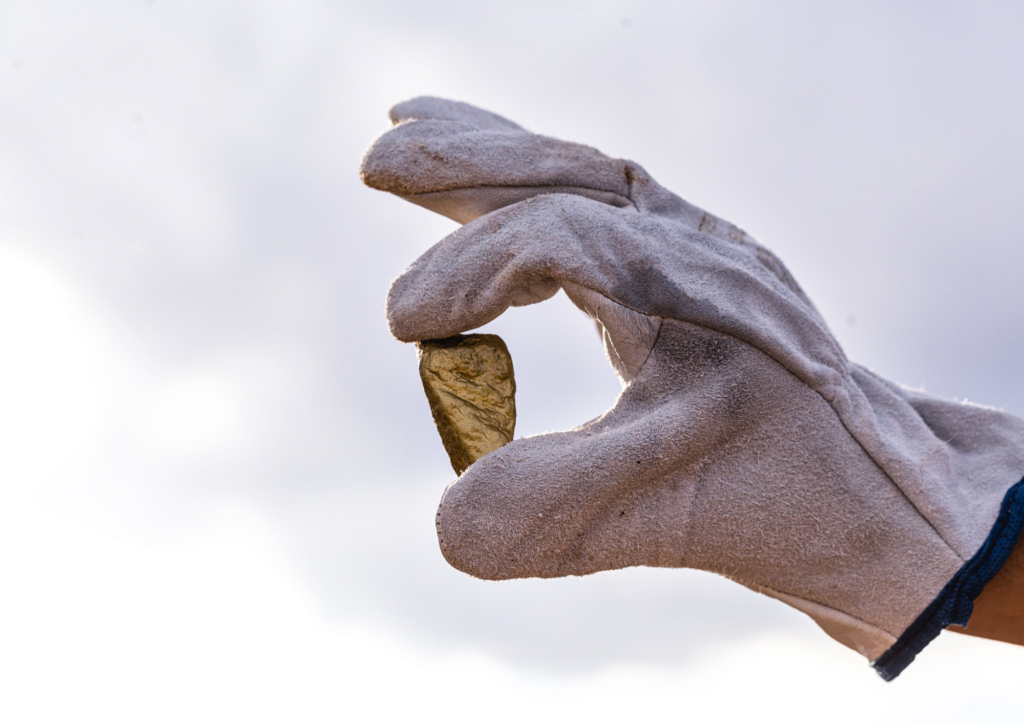
Source: Ethical Consumer
How Fair Trade Ensures an Ethical Electronics Industry
Conflict minerals are raw materials extracted from regions plagued by armed conflict and human rights abuses. These minerals, including tantalum, tin, tungsten, and gold, often end up in our electronic devices. The extraction and trade of these minerals fuel violence and exploitation, with armed groups using the proceeds to fund their activities. However, fair trade initiatives play a crucial role in mitigating the impact of conflict minerals.
In this blog post, we’ll discuss how fair trade helps electronic companies avoid using conflict minerals to manufacture their products without compromising their quality standards or bottom-line profits.
What Are Conflict Minerals?
Conflict minerals are natural resources, primarily consisting of tantalum, tin, tungsten, and gold, that are mined in regions experiencing armed conflict and human rights abuses. These minerals play a significant role in the production of various consumer electronics, such as smartphones and laptops. For example, tantalum, a versatile metal, is primarily used in the production of capacitors, which are essential components in electronic devices.
The extraction and trade of conflict minerals often perpetuate violence and exploitation, with armed groups using the profits to finance their operations and perpetuate conflicts. The sourcing of these minerals is frequently associated with labor rights violations, forced labor, and environmental damage. For example, gold miners may be vulnerable to extortion and other human rights abuses from organized crime groups operating in the area using funding from gold mining to strengthen their power.
According to the U.S. Securities and Exchange Commission (SEC), conflict minerals originate from areas including the Democratic Republic of Congo (DRC) and surrounding countries, where armed conflict and human rights abuses are prevalent. The implementation of fair trade practices in supply chains can help address the issue of conflict minerals by ensuring transparency, responsible sourcing, and accountability throughout the production process.
Conflict Minerals Sourcing: How Do Conflict Minerals End Up in Electronics?
Conflict minerals end up in electronics through a complex and opaque supply chain. The journey begins with the mining of minerals in an area of armed conflict. These minerals are then smuggled or sold to middlemen who act as intermediaries. From there, they enter a global market where they are purchased by manufacturers and incorporated into the production of electronic devices. The lack of transparency and traceability in the supply chain makes it challenging to ensure responsible sourcing. In some cases, the presence of conflict minerals in electronics can be unintentional, as they can become mixed with minerals from conflict-free sources during processing and transportation.
Addressing this issue requires a concerted effort by electronics manufacturers to establish transparent supply chains, implement due diligence measures, and support initiatives like fair trade to promote responsible sourcing and reduce the presence of conflict minerals in electronics.
Promoting Responsible Sourcing: fair trade Standards

Fair trade standards play a crucial role in helping electronics companies avoid conflict minerals by promoting responsible sourcing. These standards require companies to establish transparent supply chains and conduct thorough due diligence to trace the origin of minerals. By implementing rigorous tracking systems and engaging with certified suppliers, electronics companies can ensure that the minerals used in their products are conflict-free. This enables consumers to make informed choices, supporting brands that prioritize ethical practices.
Fairtrade International, an organization that certifies producers that operate within a set of environmental and ethical standards, has created several standards meant to reduce conflict mining. Organizations can become certified to demonstrate to buyers that their minerals are conflict-free. For example, Fairtrade International’s standard for gold and precious metals requires certified producers to avoid conflict minerals, thereby ensuring “the gold trade does not fuel instability and conflict in mining areas.”
Fair trade practices empower miners and workers in the mineral supply chain, enabling them to improve their livelihoods and create sustainable economic opportunities within the confines of the law. For example, Fairtrade International supports their certified miners by providing a Fairtrade Minimum Price for their mined gold. This helps ensure that miners earn a fair, living wage. Fairtrade miners also receive a Fairtrade Premium of USD 2000 for every kilogram of gold they sell, which can be used collectively to support community causes, such as education, and healthcare, and to act collectively against extortion or other threats.
Other Standards to Ensure Conflict-Free Mineral Sourcing
Fair trade is not the only set of standards that encourage electronics companies to engage with certified conflict-free suppliers who adhere to responsible sourcing practices. Certification programs, such as the RMI’s Responsible Minerals Assurance Process (RMAP), assess and validate suppliers’ commitment to ethical mineral sourcing. The RMAP standards ensure that the minerals meet the requirements of a variety of government regulations designed to reduce reliance on conflict minerals, including:
- U.S. Dodd-Frank Wall Street Reform and Consumer Protection Act Section 1502 requires companies to disclose their use of conflict minerals sourced from the Democratic Republic of Congo (DRC) and adjoining countries. It aims to reduce the use of conflict minerals in the manufacturing of electronics and promote transparency by mandating companies to conduct due diligence and report on the origin of these minerals to discourage funding of armed groups in the region.
- EU Regulation (EU) 2017/821, also known as the Conflict Minerals Regulation, establishes due diligence obligations for importers of tin, tantalum, tungsten, and gold into the European Union, ensuring responsible sourcing practices and promoting transparency in the supply chains of these minerals.
The list of smelters and refiners that participate in RMAP is publicly available to help downstream companies choose responsible companies. By working with certified suppliers, companies can ensure that the minerals used in their products are conflict-free and meet established ethical standards.
How Fair Trade Electronics Make a Difference
Electronics companies that rely on fair trade standards to make sourcing decisions can significantly reduce the use of conflict minerals in their products. The focus on responsible sourcing not only helps prevent the financing of armed conflict and human rights abuses but also promotes environmental sustainability and supports the well-being of local communities in mineral-rich regions. By supporting fair trade in the electronics industry, we can contribute to a more sustainable and ethically conscious future, where the bloodshed of others does not stain the devices we use.
